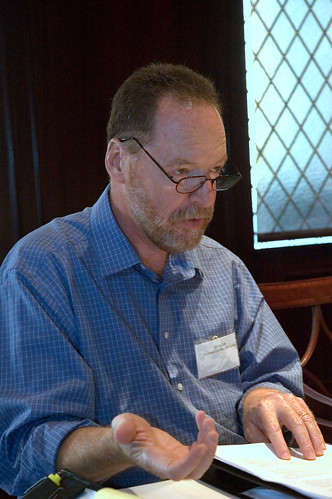Back for second day of IAOC Sessions
Good morning again from Reykjavik, where the International Association of Online Communicators is holding its international conference. We have heard several presentations on academic research by IAOC members, summarized in the blog posts below. These summaries and the forthcoming podcasts from the conference are underwritten by a grant from PRSA/Philadelphia. These posts are also being cross-posted at Lubetkin's Other Blog. The conference is also being live-blogged at http://www.iaocblog.com/.
Up first in our paper presentations today,
Using Google Applications for Online Teaching: Competition For Proprietary Educational Software in an Age of Fiscal Constraint, presented by Kevin Lee of Western Carolina University.
Free applications attractive to professors, particularly in an age of fiscal constraint.

Quotes Esther Dyson as recognizing early on that commercial life of most products online will be brief. Quotes from 1994 writing suggests that content providers will need to figure out what to charge for and what to give away free as a way to encourage people to buy other services.
Music CD sales plummeted, TV shows available on the 'net. University courses now available free online, thousands of copyright-free books, free online phone calls, open source, including wikipedia model.
Kevin sees trend accelerating, people are buying fewer things, and if they can get it online, they will.
Free microapplications at Google - course management software, email that is essentially spam-free; word processing, presentation and spreadsheet software, synchronous chat, voice chat, blogging, web creation and hosting, photo and image management, video, academic research (scholar.google.com), RSS reader, private groups.
He discussed some other online services available for academic applications, some of which charge for access, but offer some discounts if schools commit to their applications, like Blackboard.com and Web-CT.
He thinks schools will increasingly turn to the free, Google style alternatives.
Melissa Bass, a Rowan graduate student attending the session, noted that Google's scholar application is not as comprehensive as Lexis-Nexis.
She also finds gmail.com a better organizing tool and has her school email forwarded directly to gmail. She can even respond using her school email address directly from gmail.


0 Comments:
Post a Comment
Subscribe to Post Comments [Atom]
<< Home